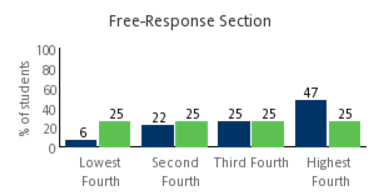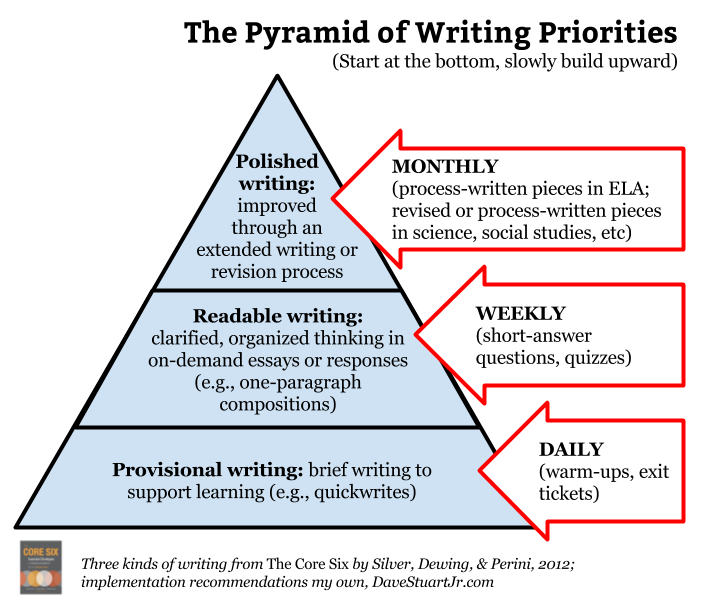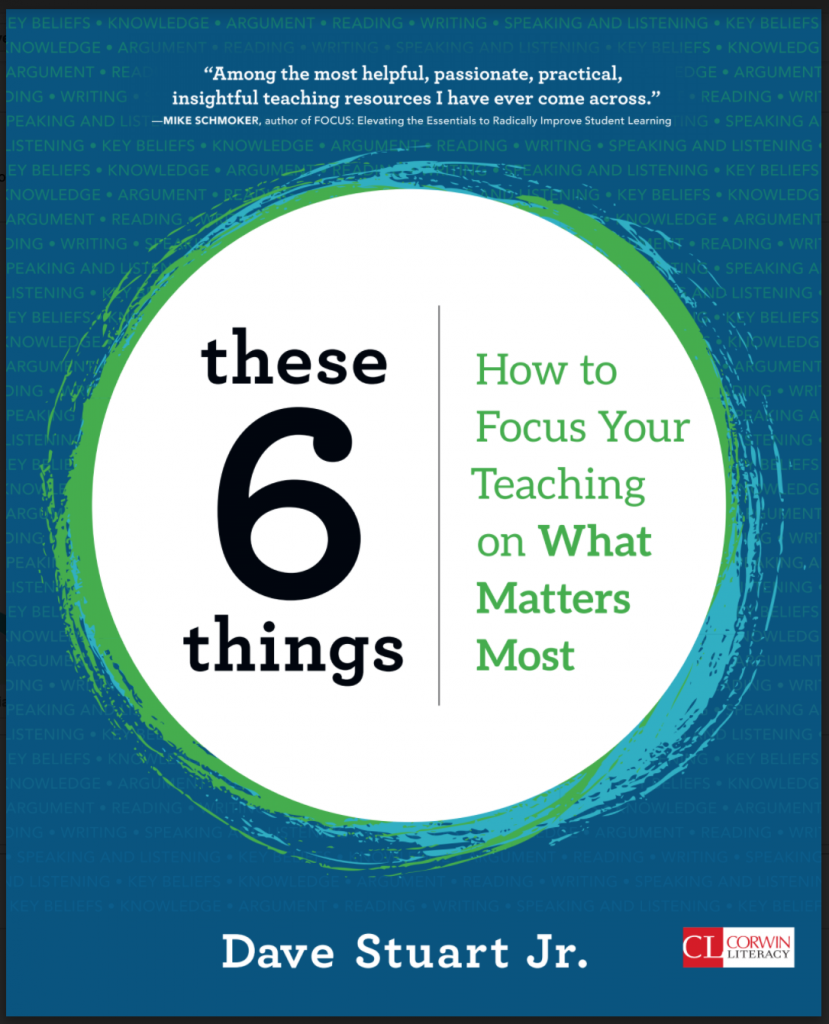Note from Dave: This post and its pyramid of writing priorities has been polished, improved, and incorporated into the writing chapter of my best-selling book, These 6 Things: How to Focus Your Teaching on What Matters Most. If you like my blog, you'll love the book — it's a condensed and coherent version of all that I've been recommending for the first decade of my blog. Learn more here.
If we could institute only one change to make students more college ready, it should be to increase the amount and quality of writing students are expected to produce.
Dr. David Conley, “The Challenge of College Readiness” in Ed Leadership, 2007
If you want to take college- and career-readiness guru David Conley's advice and get your courses or your department or your school maximizing how much and how well students write in your setting, I know of no simpler and saner approach than the “Writing to Learn” chapter of The Core Six by Silver, Dewing, and Perini.
In the chapter the authors introduce a way of thinking about writing that has greatly clarified for me how to approach Conley's challenge. Over the past several years of speaking to fellow teachers about Silver et al.'s ideas, I've come to conceive of them like this:
Let's imagine a social studies department that is doing no writing at all — zero words written per semester.
This department's first objective should be to incorporate daily provisional writing. Provisional writing is only for the purpose of learning. It does not need to communicate to anyone but oneself. This would include written warm-ups, written exit tickets — even notes based on reading or listening activities. In adding this, the department goes from zero words written per semester to thousands (assuming an average of 100 words written during each lesson).
Next, the department seeks to build on this foundation with readable writing tasks. In this case, student writers are writing for an audience, but that audience is likely limited to peers or the teacher. The prime example of readable writing would be single-paragraph responses to questions about key content knowledge in every course. At this level, readability is important, so skills like clear topic sentences, capitalizing proper nouns, using evidence to support arguments, and so on are important to A) model with exemplars, and B) provide periodic, focused feedback on. Because the teaching and grading/feedback demands are higher for readable writing, the objective at the end of the project would be to master the art and science of students completing one readable writing assignment per week, on average. Compared to the incorporation of provisional writing, this is an in-depth project. It is my estimation that very few schools have successfully built this into their social studies classes, so upon completion of this task, the social studies department would really be doing standard-setting work.
Finally, the department would enter world-class status when, on top of the work above, it begins teaching and expecting students to produce one polished piece of writing per month. This was not uncommon in my college history courses, but it's exceedingly uncommon in high school social studies classes.
If you want to know how monthly polished writing can be done in high school, then don't ask me — I am still working at the readable writing goal. Yet despite not having reached the top of the pyramid yet, last year my ninth grade AP World History students almost doubled the percentage of students who wrote in the top quartile on the free-response section of the national exam. (See Figure 2 below.) How did they do it? Not through outrageous innovation, and not through a teacher willing to sacrifice his family life on the altar of student success. No — they leveraged noncognitive factors (e.g., they worked hard, had great attitudes, and monitored their beliefs) to make much of my plodding attempts to work my curriculum up the Pyramid of Writing Priorities, one assignment at a time.



Erin says
My school bought us copies of The Core Six a few years ago, but never said a word about it. I doubt most teachers gave it a second look. I read it and couldn’t believe they actually gave us such a great resource! I absolute love the concepts of provisional, readable, and polished writing. I’ve worked that language into my classroom and have been using it ever since. I have posters on the wall describing each so students know the expectations.
I also love how honest you are that you haven’t reached readable writing yet.How many teachers would admit that? Not many. But as Mike Schmoker advocates, if we do a few things really well, then our kids will be more successful than if we touch on many things. I think writing is the same. Always enjoy your posts, but this one really stood out to me.
patrycja says
I will have to get my hands on a copy.
It seems to me you folks in the USA are more forward-thinking than we are here in Canada. I like how high the standards for writing seem in your curriculum.
davestuartjr says
Erin, you and I have a lot in common. Thank you for commenting!
Doug B Nelson says
Dave.
I echo many of Erin’s thoughts. I have turned on my fellow colleague onto your blog by saying that your advice comes not from an ivory tower, but from the trenches. I appreciate your honesty and realism.
I am wondering how you grade the provisional writing. I would love to hear your thoughts.
Thanks!
davestuartjr says
Hi Doug,
I really don’t grade provisional writing — that’s just the readable stuff that I grade. If I ever do I have to give a provisional writing grade, it’s for the sake of keeping the kids accountable for doing it. But by walking around during the provisional writing activities that we can do, I can often just do that for my unmotivated students with my presence.
chacha says
Thanks for sharing these thoughts. One of my head of departments a few schools back had a mantra that the kids must be writing more than we could ever hope to mark. Kids came to expect that they would work hard and the Grade 12 results showed that. Three cheers for teachers who set high expectations for themselves and the students in their classes.
davestuartjr says
Three cheers indeed, Chacha!
Camille Corson says
When you say ‘Writing’ are you happy with typing?
davestuartjr says
Yes I am, Camille 🙂